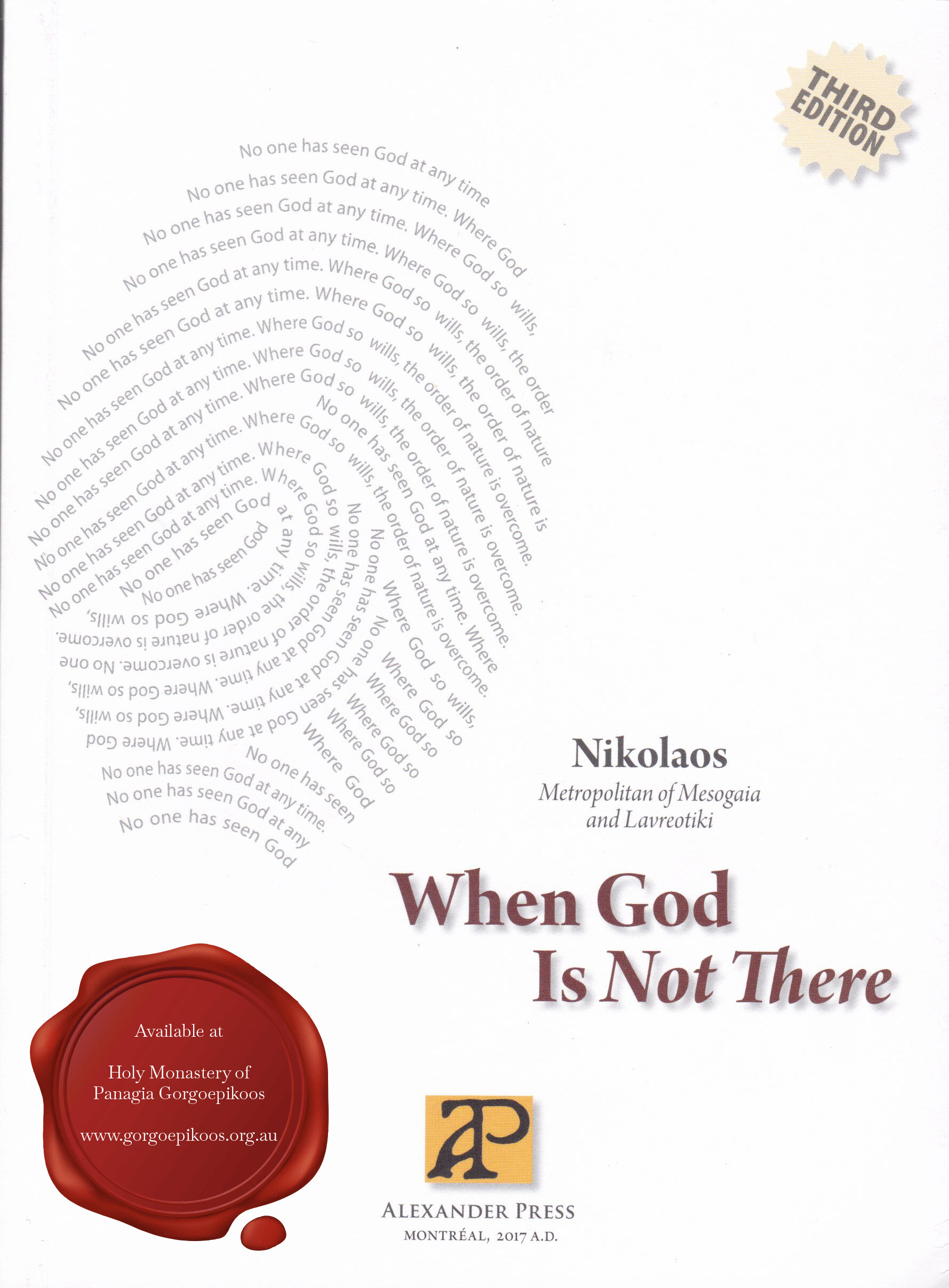When God Is Not There (Paperback) - by Metropolitan of Mesogaia and Lavreotiki
The world we live has been called a 'vale of tears', a 'place of weeping' - perhaps with good reason. Wherever you turn you see pain, sorrow, undeserved suffering, death, and sin. The 'ruler of this world' (Jn 12:31), the 'world ruler' (Eph. 6:12) is the devil. He is constantly to be seen. God, who is named 'He who is', meaning the One from whom everything comes into being, is nowhere to be seen. 'No one has seen God at any time' (John 1:18). That is why his very existence is a matter of dispute. He has, however, 'revealed himself' (John 21:1), and he promises to manifest himself to whomsoever keeps his commandmentsand loves him: 'I will manifest myself to him' (John 14:21). This book records simple events and conversations, all the while grappling with difficult questions. We see the human struggle to discover the person of God when he is veiled by the logic of this world, our limited understanding, and the arrogant pretentions of human littleness. The book engages intensely with complex and difficult issues...but which leave us confused and at times scandalised. What it does not do is give any direct answers, or try to persuade the reader through logic or impressive arguments. Its aim is to convey the sense of the discreet yet persuasive presence of the true God precisely in situations where He is not visible: in pain, in disability, in the tragedies of life, in inexorable death, as this comes across in true events and is reflected in the lives of real people.
The world we live has been called a 'vale of tears', a 'place of weeping' - perhaps with good reason. Wherever you turn you see pain, sorrow, undeserved suffering, death, and sin. The 'ruler of this world' (Jn 12:31), the 'world ruler' (Eph. 6:12) is the devil. He is constantly to be seen. God, who is named 'He who is', meaning the One from whom everything comes into being, is nowhere to be seen. 'No one has seen God at any time' (John 1:18). That is why his very existence is a matter of dispute. He has, however, 'revealed himself' (John 21:1), and he promises to manifest himself to whomsoever keeps his commandmentsand loves him: 'I will manifest myself to him' (John 14:21). This book records simple events and conversations, all the while grappling with difficult questions. We see the human struggle to discover the person of God when he is veiled by the logic of this world, our limited understanding, and the arrogant pretentions of human littleness. The book engages intensely with complex and difficult issues...but which leave us confused and at times scandalised. What it does not do is give any direct answers, or try to persuade the reader through logic or impressive arguments. Its aim is to convey the sense of the discreet yet persuasive presence of the true God precisely in situations where He is not visible: in pain, in disability, in the tragedies of life, in inexorable death, as this comes across in true events and is reflected in the lives of real people.
The world we live has been called a 'vale of tears', a 'place of weeping' - perhaps with good reason. Wherever you turn you see pain, sorrow, undeserved suffering, death, and sin. The 'ruler of this world' (Jn 12:31), the 'world ruler' (Eph. 6:12) is the devil. He is constantly to be seen. God, who is named 'He who is', meaning the One from whom everything comes into being, is nowhere to be seen. 'No one has seen God at any time' (John 1:18). That is why his very existence is a matter of dispute. He has, however, 'revealed himself' (John 21:1), and he promises to manifest himself to whomsoever keeps his commandmentsand loves him: 'I will manifest myself to him' (John 14:21). This book records simple events and conversations, all the while grappling with difficult questions. We see the human struggle to discover the person of God when he is veiled by the logic of this world, our limited understanding, and the arrogant pretentions of human littleness. The book engages intensely with complex and difficult issues...but which leave us confused and at times scandalised. What it does not do is give any direct answers, or try to persuade the reader through logic or impressive arguments. Its aim is to convey the sense of the discreet yet persuasive presence of the true God precisely in situations where He is not visible: in pain, in disability, in the tragedies of life, in inexorable death, as this comes across in true events and is reflected in the lives of real people.
